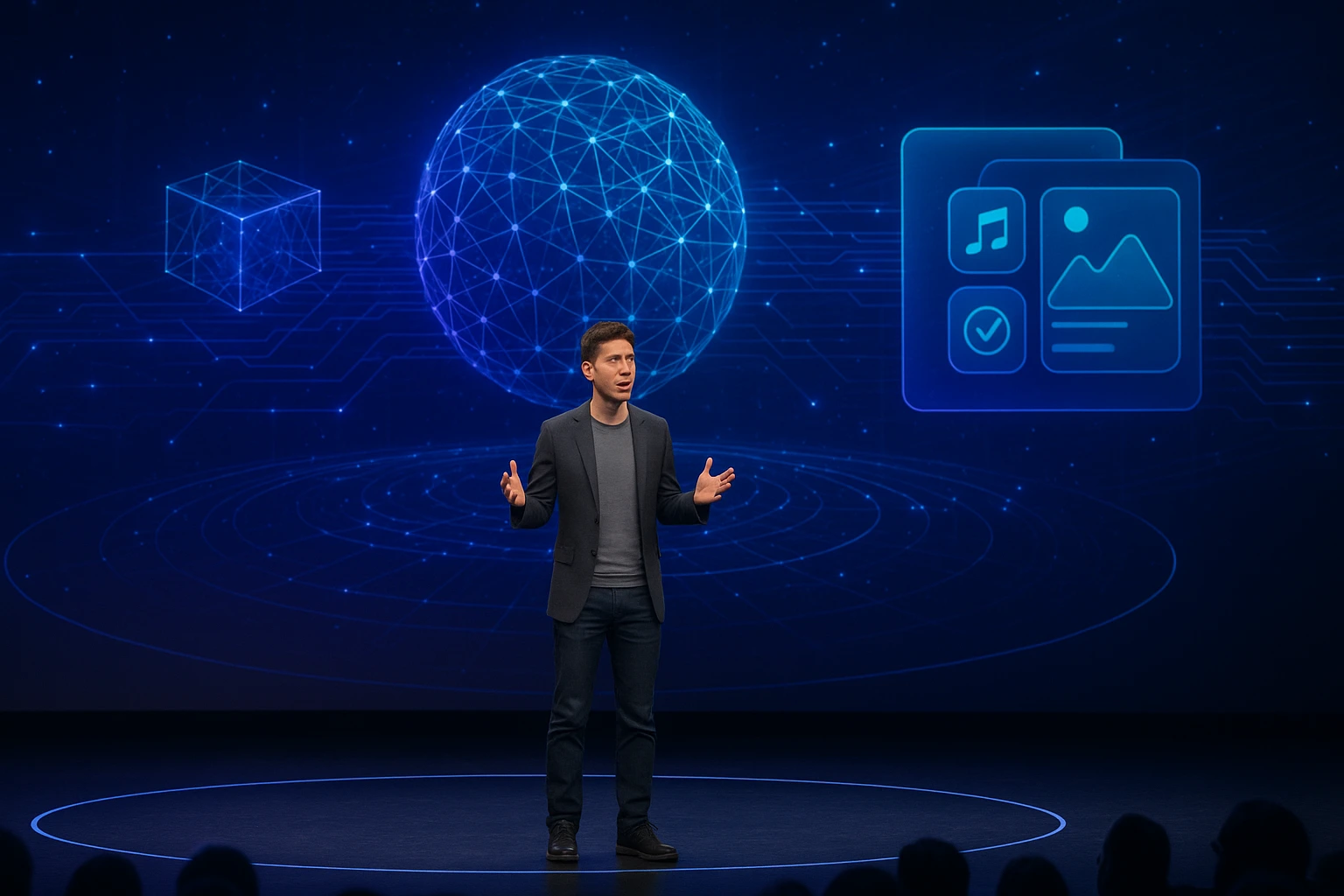During OpenAI DevDay 2025, Sam Altman announced a new wave of products and features designed to expand the OpenAI ecosystem.
He confirmed that more than four million developers now use OpenAI’s platform, with a growing focus on enterprise solutions and creative tools.
Altman said the company is moving beyond simple chat interaction. The goal is to transform ChatGPT into a dynamic environment where users can run apps, automate workflows, and manage tasks directly inside conversations.
He also revealed a new monetization system that allows developers to sell digital tools and services within ChatGPT.
In-Chat Apps and SDK Launch
One of the event’s biggest announcements was the launch of in-Chat apps.
Developers can now use the Apps SDK to create interactive applications that operate entirely within ChatGPT’s interface.
Altman demonstrated how users can design posters through Canva, browse homes via Zillow, or generate playlists with Spotify—all without leaving the chat window.
The new interface also supports full-screen modes, allowing for more immersive and responsive user experiences.
OpenAI plans to introduce a public app directory and detailed developer standards to ensure quality and consistency across all integrated tools.
AgentKit: The Future of AI Agents
Another major highlight was AgentKit, a toolkit that enables developers to build custom AI agents with logic, context, and real-time decision-making.
The kit includes two core components: Agent Builder and ChatKit. These allow users to visually design agents, test workflows, and embed them into products or internal systems.
Altman demonstrated how an AI agent could be built from scratch in under ten minutes using the toolkit.
AgentKit also features analytics, prompt optimization, and automatic performance grading—turning prototypes into production-ready assistants.
GPT-5 Pro, Codex Upgrades, and API Expansion
OpenAI officially launched GPT-5 Pro, a precision-focused model optimized for advanced reasoning and data analysis.
It is now available through the API for industries such as healthcare, finance, and legal services.
The company also expanded its Codex developer tools, adding integrations with IDEs, terminals, and GitHub for smoother coding experiences.
For voice and audio applications, OpenAI introduced GPT Realtime Mini, a faster, expressive voice model that operates at a lower cost.
In addition, Sora 2, the advanced AI video model, is now accessible through the API with adjustable resolution, length, and creative controls.
OpenAI’s Enterprise and Infrastructure Growth
Altman announced a new AMD partnership to strengthen OpenAI’s compute infrastructure and support growing demand.
He described ChatGPT’s evolution into a new kind of “AI operating system,” where users manage multiple tasks through natural conversation rather than switching between apps.
OpenAI also emphasized its enterprise focus with improved admin controls, governance tools, and performance monitoring for business clients.
Conclusion
The OpenAI DevDay 2025 event marked a major leap in OpenAI’s journey toward making ChatGPT a universal AI platform.
With GPT-5 Pro, AgentKit, and in-Chat apps, the company is redefining how users interact with technology.
As OpenAI expands its infrastructure and developer ecosystem, ChatGPT is no longer just a chatbot—it’s becoming a complete digital workspace.


0 responses to “Altman Opens OpenAI DevDay 2025 with Major Upgrades”